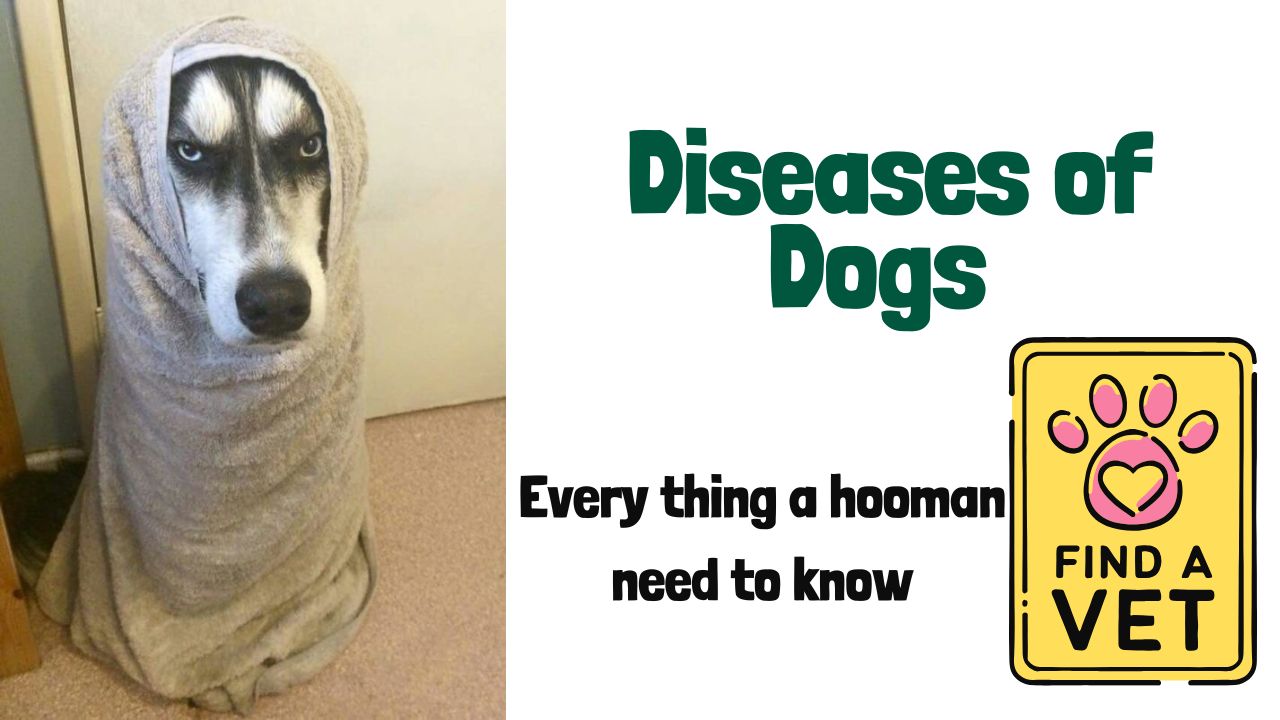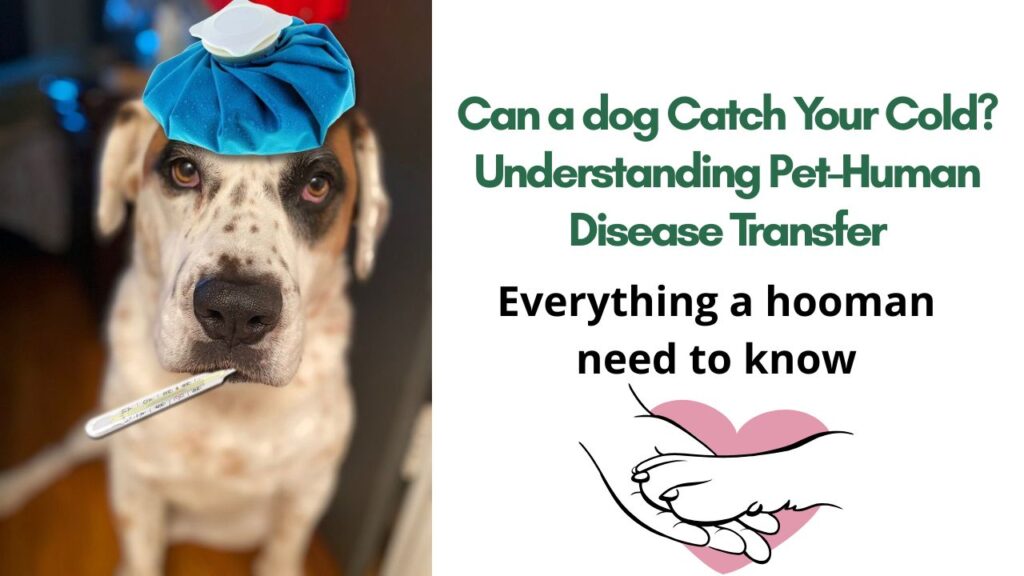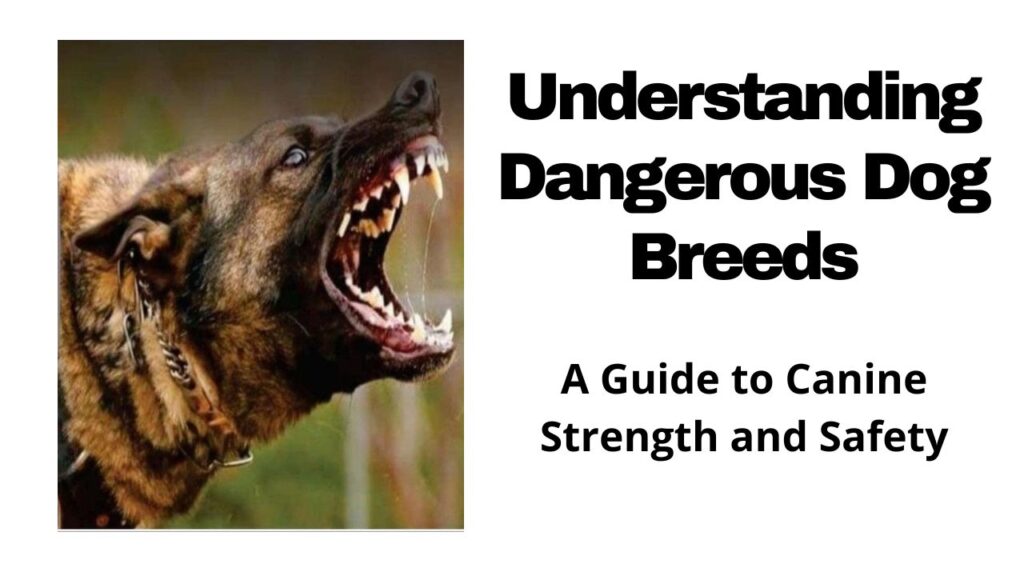Welcome to the delightful world of dogs! As pet owners, we cherish the joy and companionship our furry friends bring into our lives. However, just like humans, dogs can also face health challenges. Understanding common diseases that affect dogs is crucial for their well-being. In this article, we will explore various infectious and non-infectious diseases, preventive measures, and how to ensure your dog stays healthy and happy.
Infectious Diseases

Infectious diseases can spread quickly among dogs, often through direct contact or contaminated environments. Here’s a closer look at some of the most common infectious diseases:
Canine Parvovirus (Parvo)
Canine Parvovirus is a highly contagious virus that primarily affects puppies and unvaccinated dogs. Symptoms include severe vomiting, diarrhea (often bloody), lethargy, and loss of appetite. The virus attacks the intestinal lining, leading to dehydration and can be fatal if not treated promptly.
Canine Distemper
Canine Distemper is another serious viral disease that affects a dog’s respiratory, gastrointestinal, and nervous systems. Symptoms may include fever, coughing, nasal discharge, vomiting, diarrhea, and neurological signs such as seizures. Vaccination is key to preventing this disease.
Leptospirosis
Leptospirosis is a bacterial infection that dogs can contract through contaminated water or soil. It can lead to liver damage and kidney failure. Symptoms include fever, vomiting, diarrhea, abdominal pain, and jaundice. Vaccination is available but not always routinely given.
Rabies
Rabies is a viral disease that affects the brain and is almost always fatal once symptoms appear. It is transmitted through bites from infected animals. Symptoms may include behavioral changes (aggression or fearfulness), excessive drooling, paralysis, and seizures. Vaccination against rabies is legally required in many areas.
Kennel Cough (Bordetella)
Kennel Cough is a highly contagious respiratory disease caused by various viruses and bacteria. It spreads easily in places where dogs congregate, such as kennels or dog parks. Symptoms include a dry cough, retching, and nasal discharge. While it is usually mild, vaccination can help prevent severe cases.
Heartworm Disease
Heartworm disease is caused by parasitic worms transmitted through mosquito bites. It can lead to severe lung disease and heart failure if left untreated. Symptoms may include coughing, fatigue, weight loss, and swollen abdomen due to fluid accumulation. Preventive medications are essential for protection.
Additional Infectious Diseases
- Canine Influenza: A contagious respiratory infection.
- Parainfluenza Virus: Often part of kennel cough complex.
- Fungal Infections: Such as ringworm or blastomycosis.
Non-Infectious Diseases
Non-infectious diseases are not caused by pathogens but can significantly affect your dog’s health.
Obesity
Obesity is a growing concern for dogs and can lead to various health issues like diabetes, heart disease, joint problems, and decreased lifespan. Regular exercise and a balanced diet are crucial for maintaining a healthy weight.
Gum Disease
Dental health is often overlooked in dogs but is vital for their overall well-being. Gum disease can lead to pain, tooth loss, and infections that affect other organs. Regular dental check-ups and cleanings are essential.
Ear Infections
Ear infections are common in dogs with floppy ears or those that swim frequently. Symptoms include scratching at the ears, shaking the head, and foul odor from the ear canal. Regular ear cleaning can help prevent infections.
Additional Non-Infectious Diseases
- Diabetes Mellitus: A condition where the body cannot regulate blood sugar levels.
- Hypothyroidism: An underactive thyroid gland leading to weight gain and lethargy.
- Cancers: Various types of cancer can affect dogs as they age.
Common Non-Specific Conditions
Some conditions do not fit neatly into infectious or non-infectious categories but still require attention.
Dermatitis
Dermatitis refers to skin inflammation that can result from allergies or irritants. Symptoms may include itching, redness, hair loss, and scabs. Identifying the underlying cause is essential for effective treatment.
Gastroenteritis
Gastroenteritis involves inflammation of the stomach and intestines leading to vomiting and diarrhea. It can be caused by dietary indiscretion or infections.
Arthritis
Arthritis is common in older dogs and leads to joint pain and stiffness. Weight management and appropriate exercise can help manage symptoms.
Additional Non-Specific Conditions
- Anxiety Disorders: Such as separation anxiety.
- Urinary Tract Infections: Leading to frequent urination or straining.
- Heatstroke: A serious condition caused by overheating.
Foods to Avoid for Dogs
Certain foods are harmful or toxic to dogs:
- Chocolate: Contains theobromine which is toxic.
- Onions & Garlic: Can damage red blood cells.
- Grapes & Raisins: Can cause kidney failure.
- Avocado: Contains persin which can be harmful.
- Alcohol: Even small amounts can be dangerous.
- Caffeine: Can lead to restlessness and rapid heart rate.
- Xylitol: A sugar substitute that can cause insulin release leading to hypoglycemia.
Activities to Avoid for Dogs
To keep your dog healthy:
- Avoid strenuous exercise during extreme heat or cold.
- Do not allow them to drink from stagnant water sources.
- Keep them away from areas with high parasite populations (e.g., tall grass).
- Avoid exposing them to harmful chemicals (e.g., antifreeze).
Safety Considerations for Dogs in Different Weather Conditions
Weather conditions can impact your dog’s health:
Hot Weather
Ensure your dog has access to shade and fresh water. Avoid walking them during peak heat hours to prevent heatstroke.
Cold Weather
Protect your dog from extreme cold with appropriate clothing if they have short fur or are small breeds prone to getting cold easily.
Common Questions About Dog Disease Prevention
- What vaccinations does my dog need?
- Consult your veterinarian for a vaccination schedule tailored to your dog’s needs.
- How often should I take my dog for check-ups?
- Annual visits are recommended; more frequent visits may be necessary for older dogs or those with health issues.
- What signs indicate my dog might be sick?
- Look for changes in appetite, energy levels, behavior changes, vomiting, diarrhea, or unusual coughing.
- How can I prevent obesity in my dog?
- Maintain a balanced diet with controlled portions and regular exercise.
- What should I do if my dog has fleas?
- Use veterinarian-recommended flea treatments and regularly clean your home.
- Is it safe for my dog to play with other dogs?
- Yes! Just ensure they are up-to-date on vaccinations before socializing with other pets.
- How do I know if my dog has allergies?
- Look for symptoms like itching or skin irritations; consult your vet for testing if suspected.
- Can I give my dog human medication?
- Never give human medication without consulting your veterinarian first; some medications are toxic to dogs.
- How often should I groom my dog?
- Regular grooming depends on the breed; long-haired breeds may need more frequent grooming than short-haired ones.
- What should I do if my dog gets bitten by another animal?
- Seek veterinary care immediately; even minor bites can lead to infections.
When to See a Veterinarian
It’s essential to recognize when your dog needs medical attention:
- Persistent vomiting or diarrhea lasting more than 24 hours
- Signs of pain (whining, reluctance to move)
- Difficulty breathing
- Excessive thirst or urination
- Swelling in any part of the body
- Seizures
- Loss of consciousness
If you notice any of these symptoms in your dog, it’s crucial to consult your veterinarian promptly for an accurate diagnosis and treatment plan.
Conclusion
Understanding common diseases that affect our canine companions allows us as pet owners to take proactive steps toward their health care needs. By recognizing symptoms early on and seeking veterinary advice when necessary, we can ensure our furry friends live long, happy lives filled with love and companionship. Remember that prevention through vaccination, proper nutrition, regular exercise, and routine veterinary check-ups plays a vital role in keeping our pets healthy!As you navigate this journey of pet ownership with love and care for your furry friend’s well-being—don’t hesitate! Engage with fellow pet owners about their experiences or share your thoughts below! Together we can create a community focused on enhancing our beloved pets’ lives!






